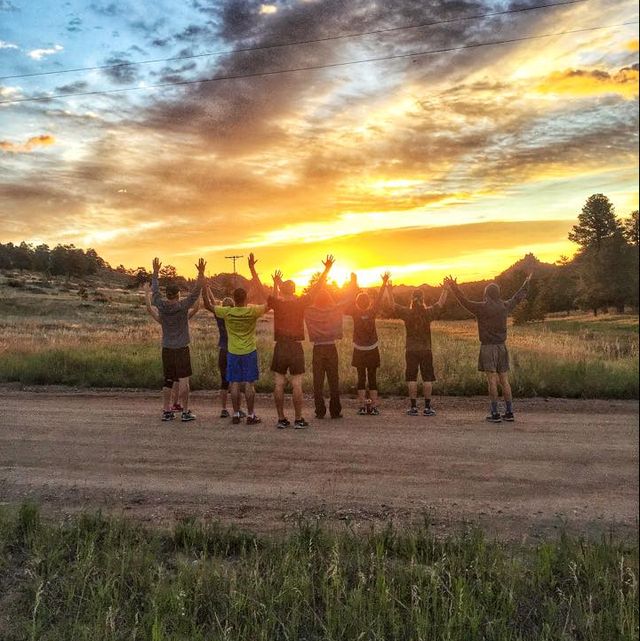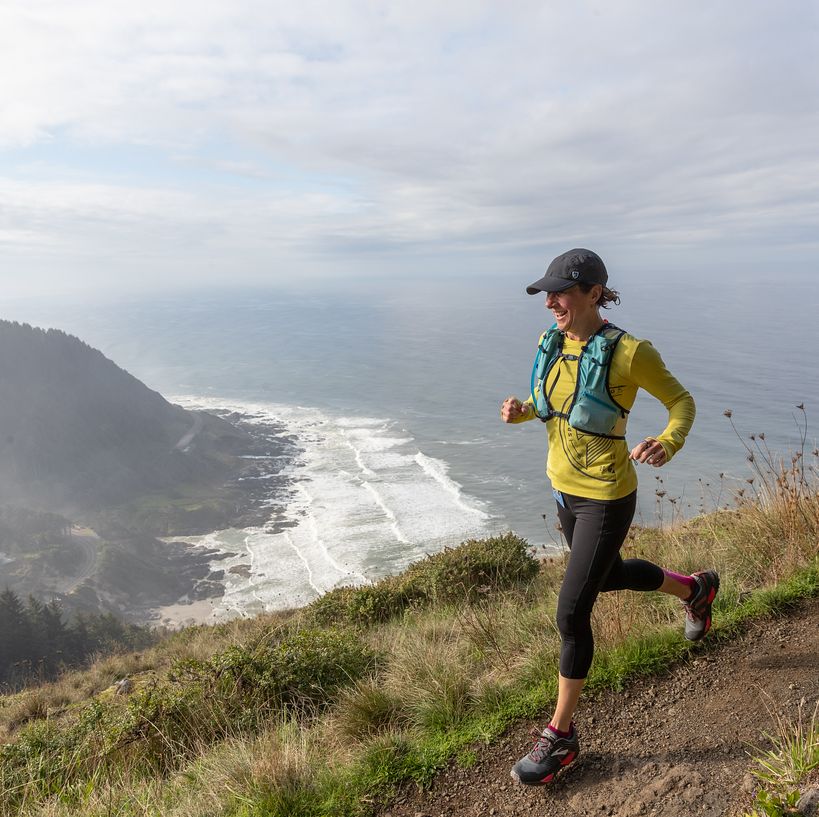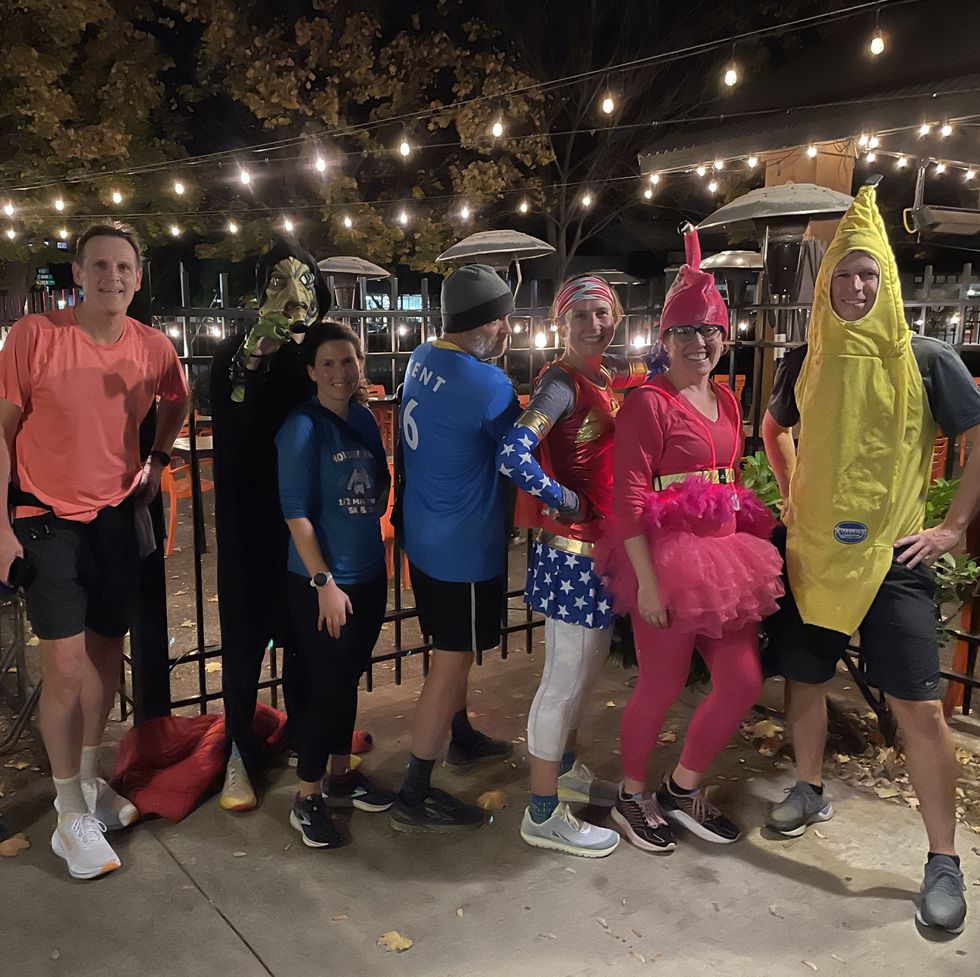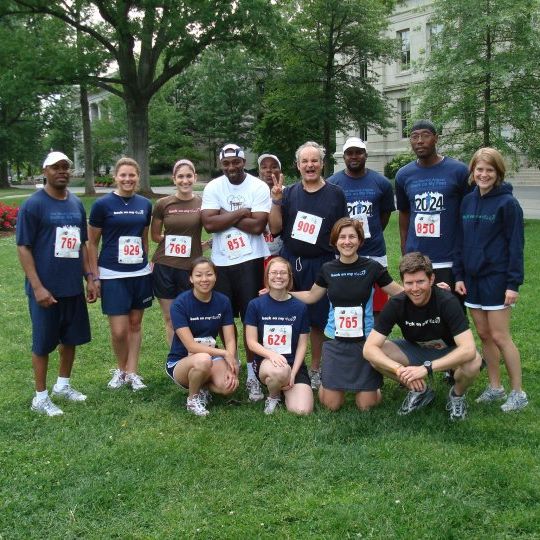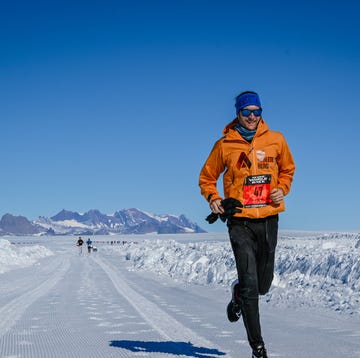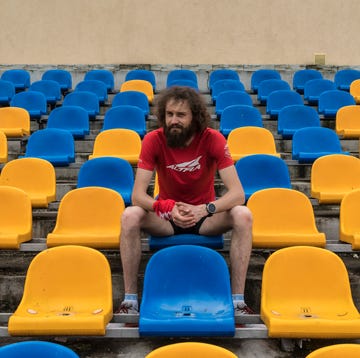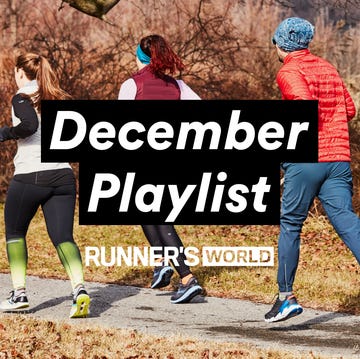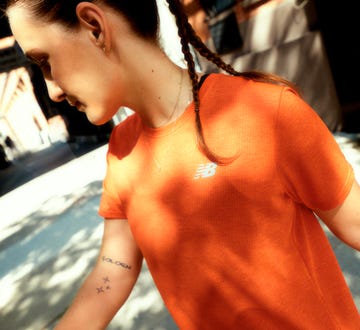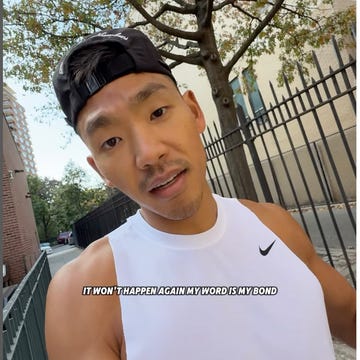Anastasia Christman, 54, never saw herself as a runner—likely because as a teenager, the Ohio native, had lots of issues with her knee. “They did a surgery on one knee that didn’t go very well,” she says. “I was always told that the one thing that I couldn’t do was run.”
Despite her physical setbacks, her outlook on running changed in 1995 after she drove four friends to the starting line of the Los Angeles Marathon. Her interest was piqued. “I brought a book and I was just going to sit and read and have some coffee while they ran,” she says. “I glanced at the starting line and a lot of the participants didn’t strike me as what I thought runners looked like in my head,” she recalls. “They looked, well, normal, and I started to wonder, ‘could I maybe do this?’”
The answer was yes. Since picking up the sport in her 30s, Christman has run 15 marathons, 4 ultra-marathons and “more halves than I can even keep track of,” she says. Her only regret: not starting sooner. “I wish that I hadn’t listened to that doctor because I lost a lot of great years,” says Christman, who knocks out about 35 trail miles weekly.
Running for Christman not only allowed her to overcome a physical issue, but it helped her build her own personal running community filled with what she calls “casual relationships” and “deeper, personal ones.” Both are important to her. According to Christman, the casual ones are where she cheers on random people at races, or the waves she gives to passerby in town on her daily jogs. “I don’t know who they are, but I see them all the time,” she says. And that familiarity brings her comfort.
As for the deeper connections, those developed into genuine friendships. “When I lived in LA, there was a group of women that I ran with every weekend,” says Christman. “We would rotate someone to pick the trail we ran and the place we went to eat afterwards,” she adds. While Christman’s trail crew talked about running, they also dove deeper into conversations about jobs, partners, kids, and life. “Before we knew it, we had built these really strong relationships that began with our shared love of running,” she says.
Christman has created such communities based on running everywhere she’s lived. In her current home base of Walla Walla, Washington, she meets up with the Walla Walla Runners in front of a local pub every Wednesday. They run a 5K together and have beer “and too many tater tots” before going their separate ways. These various groups across different cities and years have shown up for Christman time and time again, helping her through some rough patches in her own life. A particularly painful time was upon moving to Walla Walla from Washington, D.C., and her husband was diagnosed with cancer and subsequently died.
“We hadn’t lived here for all that long when he got sick, so I didn’t have a super strong community yet,” Christman says, noting that at that time she was trying to continue running for her own mental health. “One day this box arrived and it was a care package from my running friends back in D.C. with a new pair of shoes, a hat, shirt, and some snacks,” she remembers. “It was the greatest gift I ever got because it reminded me to hang onto running and this part of myself, even as the focus in my life was changing into becoming a caregiver.”
Because of all that running has provided to Christman, she gives back to the sport. One way, she volunteers with Back on My Feet, an organization that helps combat homelessness through fitness, community support, and essential employment and housing resources.
“We would get up really early in the morning and convene at a shelter that housed only men. We’d run together through neighborhoods a lot of them had grown up in but a lot of the volunteers had not.” she says. “There is something about running together, you are literally breathing together and your footsteps may start syncing up, that creates this ease of conversation,” she says. “I met and ran with people that in a lot of other circumstances I never otherwise would have.” It was here that Christman had a candid conversation with one of the men about racial discrimination, profiling, and human rights. “ I never would have met this person or had this conversation if I hadn’t been running with him,” she says.
Community has come in a variety of forms thanks to Christman’s outdoor pursuits. She has met all kinds of people and formed true bonds quickly. “It’s harder to engage in the nonsense when you are running,” she says. “When you spend, 10 or 15 minutes running next to somebody, even if you don’t know them, you usually start chatting,” she says. “You get a real glimpse into who they are because you are with them during a physical challenge.”
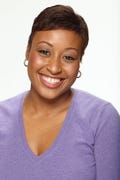
Rozalynn S Frazier is an award-winning, multimedia journalist, and certified personal trainer living in New York City. She has created content for SELF, Health, Essence, Runner's World, Money, Reebok, Livestrong, and others.

